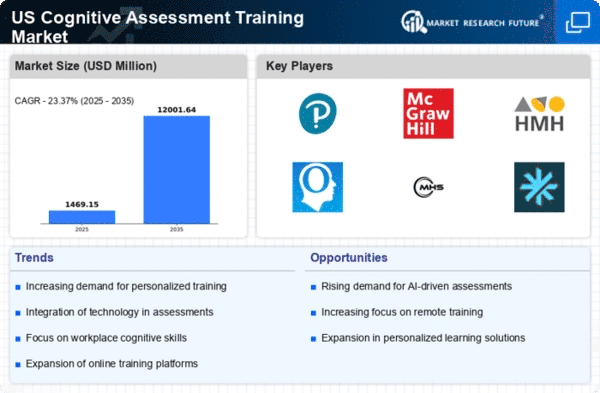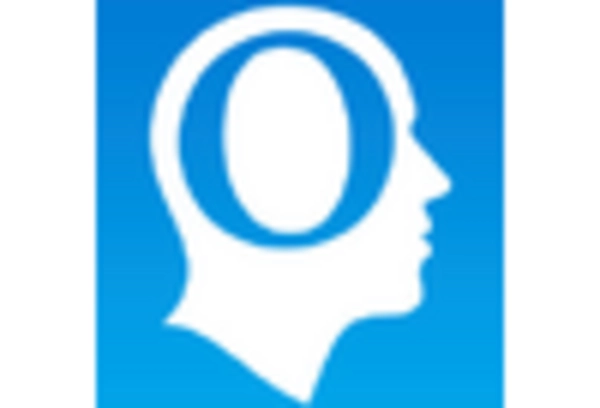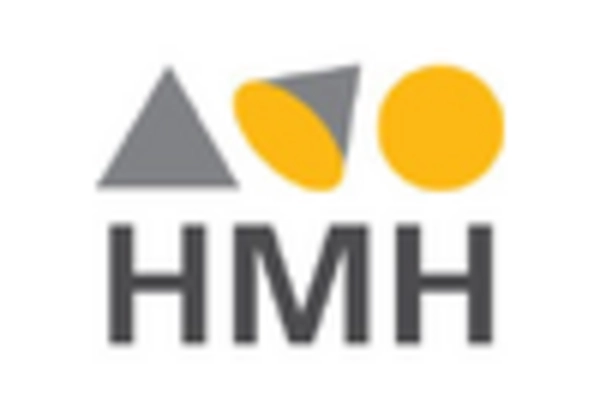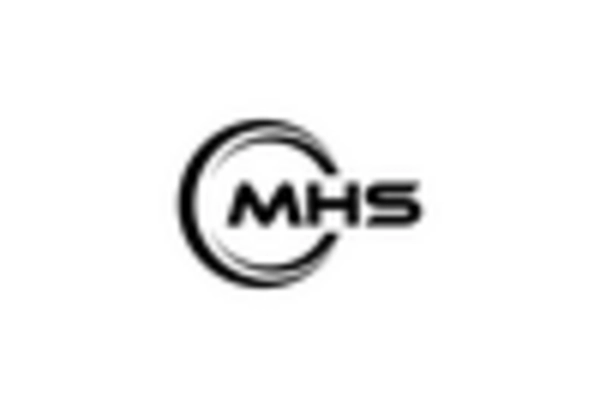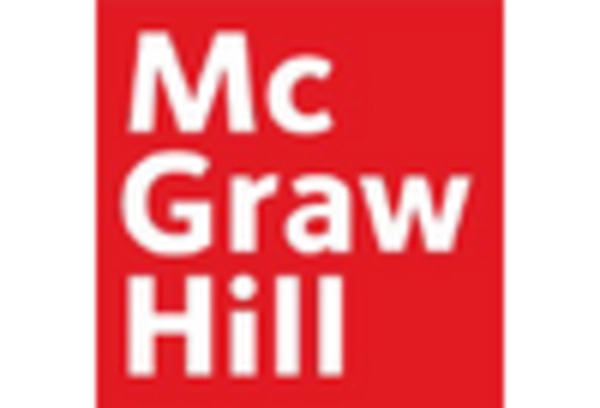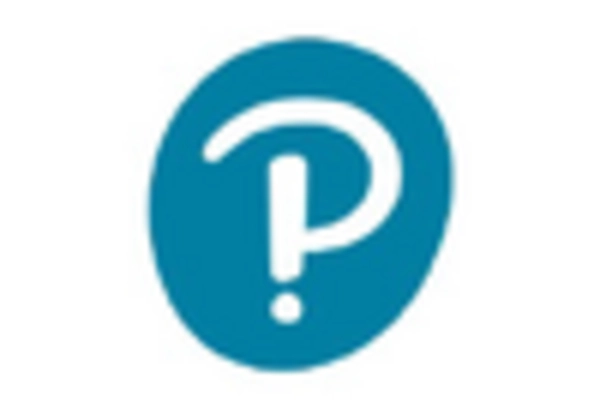Rising Demand for Employee Training
The cognitive assessment-training market is experiencing a notable increase in demand for employee training programs. Organizations are recognizing the importance of enhancing cognitive skills to improve productivity and efficiency. According to recent data, companies that invest in cognitive training see an average productivity increase of 20%. This trend is driven by the need for a skilled workforce capable of adapting to rapidly changing job requirements. As businesses strive to maintain a competitive edge, they are likely to allocate more resources towards cognitive training initiatives. This shift not only benefits employees by enhancing their skills but also contributes to overall organizational success. Consequently, the cognitive assessment-training market is poised for growth as more companies prioritize cognitive development as a key component of their training strategies.
Growing Awareness of Cognitive Health
There is a growing awareness of the importance of cognitive health among individuals and organizations alike. This awareness is driving the cognitive assessment-training market as more people seek to understand and improve their cognitive abilities. Research indicates that cognitive decline can be mitigated through targeted training, leading to increased interest in cognitive assessments. As individuals prioritize mental fitness, organizations are also recognizing the need to support their employees' cognitive health. This trend is likely to result in a surge in demand for cognitive training programs, as both individuals and companies invest in maintaining cognitive well-being. Consequently, the The market is expected to benefit from this heightened focus on cognitive health..
Increased Focus on Educational Institutions
Educational institutions are increasingly adopting cognitive assessment-training programs to enhance student learning outcomes. Schools and universities are recognizing the value of cognitive assessments in identifying students' strengths and weaknesses. This trend is reflected in the growing investment in cognitive training tools, with the market projected to reach $2 billion by 2026. By integrating cognitive assessments into their curricula, educational institutions aim to foster critical thinking and problem-solving skills among students. This focus on cognitive development is likely to lead to improved academic performance and better preparation for future careers. As a result, the cognitive assessment-training market is expected to expand as educational institutions seek innovative solutions to enhance their teaching methodologies.
Technological Advancements in Assessment Tools
The cognitive assessment-training market is significantly influenced by technological advancements in assessment tools. Innovations such as artificial intelligence and machine learning are transforming how cognitive assessments are conducted. These technologies enable more accurate and efficient evaluations of cognitive abilities, leading to personalized training programs. The market for cognitive assessment tools is projected to grow at a CAGR of 15% over the next five years, driven by the demand for more sophisticated assessment methods. Organizations are increasingly adopting these advanced tools to gain insights into employee capabilities and tailor training accordingly. This trend suggests that the cognitive assessment-training market will continue to evolve as technology plays a crucial role in shaping assessment practices.
Regulatory Support for Cognitive Training Programs
Regulatory support for cognitive training programs is emerging as a key driver in the cognitive assessment-training market. Government initiatives aimed at promoting workforce development and education are encouraging organizations to invest in cognitive training. For instance, various federal and state programs provide funding and resources for cognitive assessment initiatives. This support not only enhances the accessibility of cognitive training but also legitimizes its importance in workforce development. As organizations take advantage of these resources, the cognitive assessment-training market is likely to see increased participation from businesses seeking to comply with regulatory standards. This trend indicates a positive outlook for the market as regulatory frameworks continue to evolve in favor of cognitive training.


